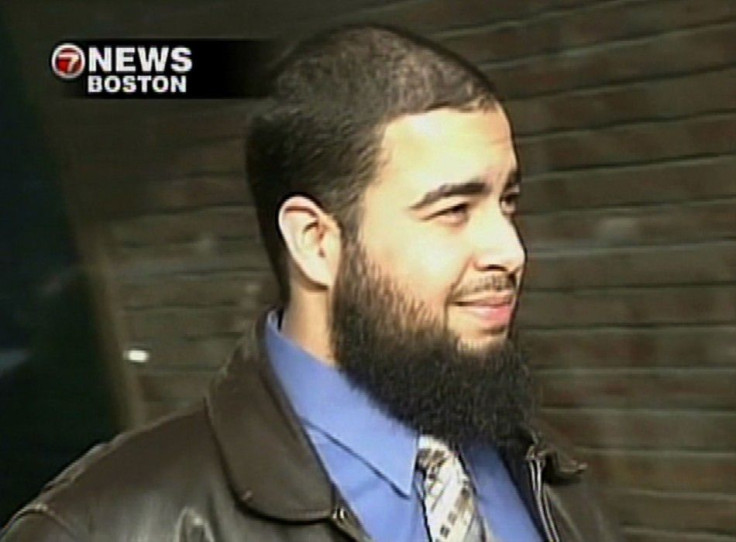Tarek Mehanna: American Muslim Sentenced For Posting Jihadist Materials

A federal court on Friday sentenced Tarek Mehanna to 17 years in prison, prompting an impassioned speech from the American Muslim charged with disseminating jihadist propaganda on the Internet.
Prosecutors said that Mehanna traveled to Yemen in 2004, motivated by a desire to receive terrorism training and join the fight against American troops in Iraq, but was turned away. From there, he turned to translating and posting extremist texts and videos supporting Al Qaeda's philosophy, including a manual entitled 39 Ways to Make and Participate in Jihad.''
The Sudbury, Massachusetts native was sentenced on four charges relating to terrorism and three counts of lying to investigators. He maintained that he was acting within his First Amendment rights to address what he called oppression of Muslims around the world. He also said he was approached about becoming a government informant, an allegation prosecutors denied.
One day, America will change and people will recognize this day for what it is, Mehanna said. They will look at how hundreds of thousands of Muslims were killed and maimed by the U.S. military in foreign countries, yet somehow I'm the one going to prison for conspiring to kill and maim in those countries - because I support the Mujahidin defending those people.
US District Court Judge George A. O'Toole Jr. said that Mehanna's charisma was on display in a long and eloquent speech during sentencing, but he pronounced himself disturbed by Mehanna's apparent absence of remorse.
We all do acts, both good and evil, in the course of our life,'' O'Toole said. But just as two wrongs don't make a right, two rights don't excuse a wrong, and the wrong still must be punished.''
In his speech, Mehanna referenced learning about American revolutionaries like Thomas Paine and Paul Revere, whose actions against the British he likened to the activities of jihadist dissidents, as well as civil rights figures like Martin Luther King, Jr. and Malcolm X. He spoke about the crippling sanctions Americans imposed on Iraq before the 2003 war; massacres by U.S. troops in Haditha, Iraq; and more recently the shooting of 17 Afghan civilians by Sgt. Robert Bales.
America has historically supported the most unjust policies against its minorities - practices that were even protected by the law - only to look back later and ask: 'What were we thinking?' Mehanna said, also citing the imprisonment of former South African president Nelson Mandela.
Mehanna's father Ahmed, speaking to the Associated Press, likened his son's activities to translating a book. But prosecutors said that he had crossed the line by inciting violence against American troops.
It's the perverted interpretation of a great faith to motivate other people to take up arms against'' the United States, said Assistant U.S. Attorney Aloke Chakravarty. The crimes the defendant has been convicted of are among the most significant in the criminal justice system. When you inspire others to take up arms against your country, it deserves penalties.''
© Copyright IBTimes 2025. All rights reserved.





















